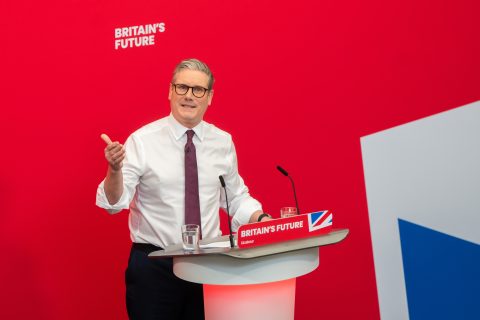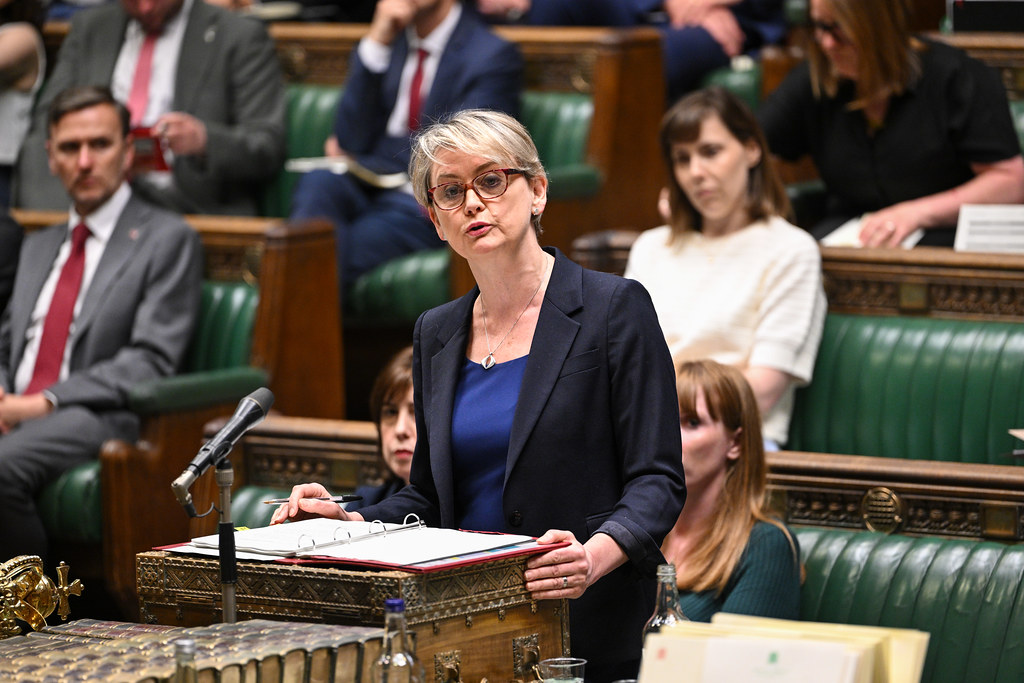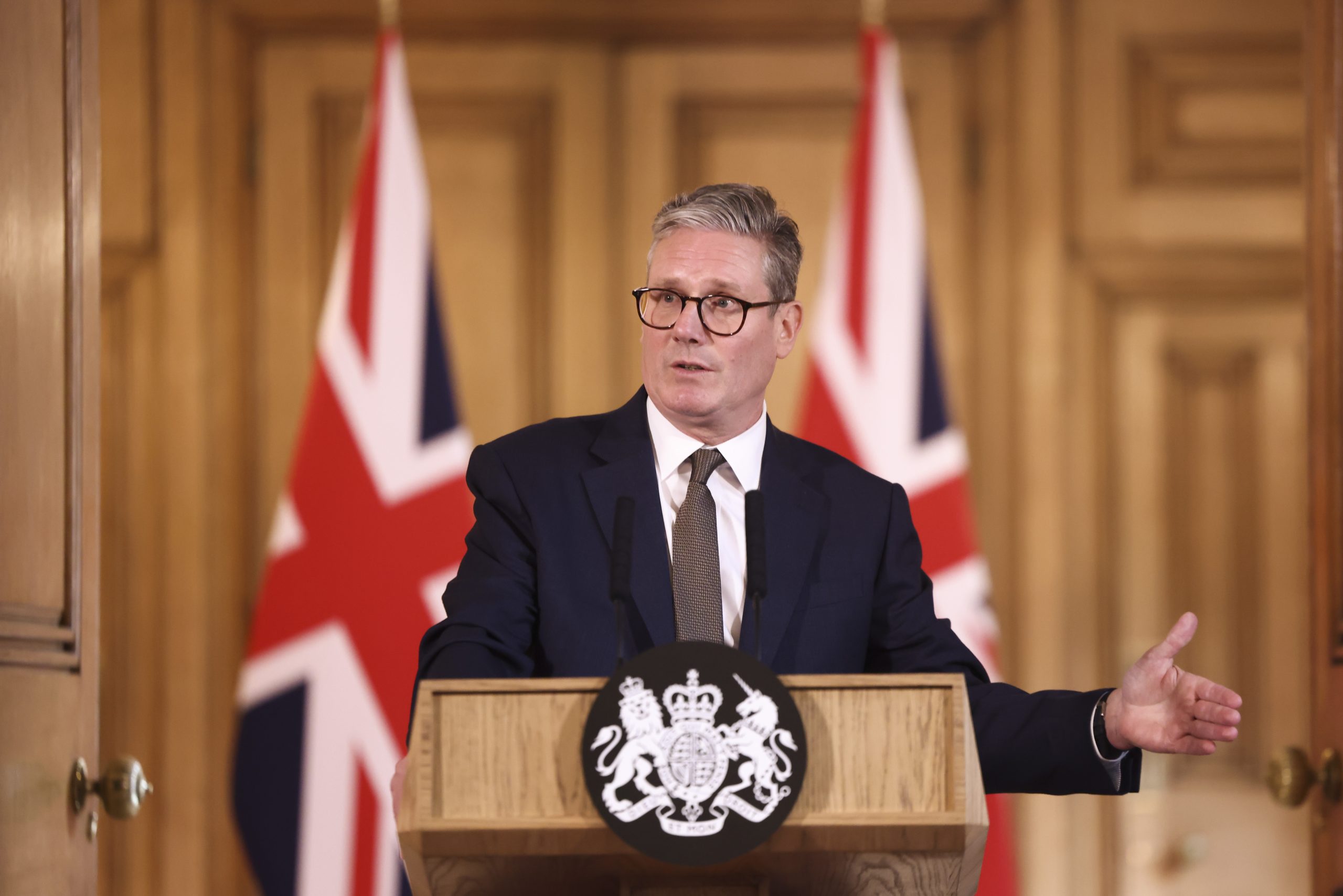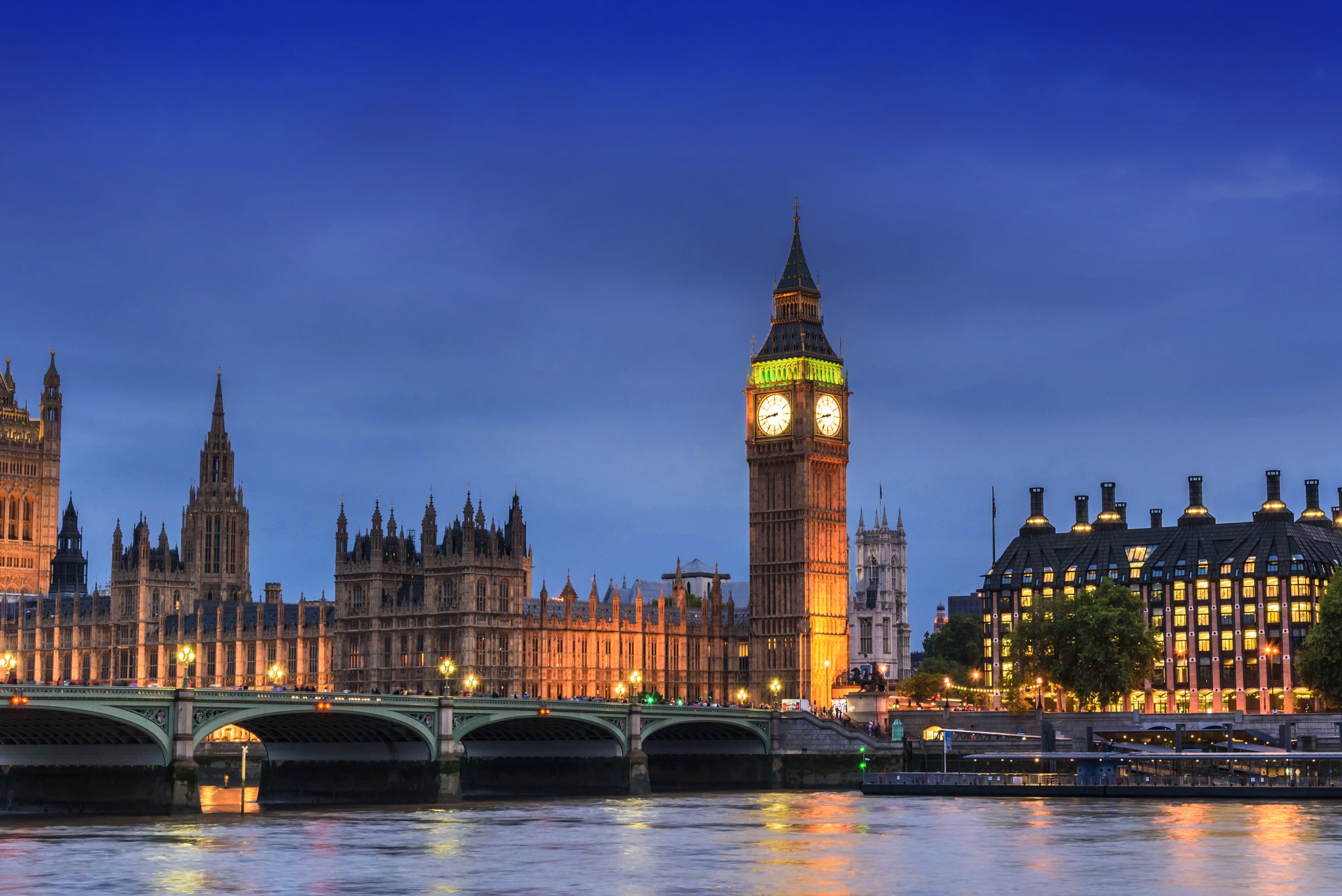
Labour’s immigration reforms repeat the Conservative playbook: tough talk, restricted rights, and little honesty about Britain’s real needs. We all deserve a country we can be proud of, a country with higher standards, rooted in responsibility, history, and actual fairness.
The Disappointment of Labour on Immigration
In her 1 September statement, the Home Secretary set out major reforms to the immigration system. The package included a UK–France returns treaty pilot, the creation of a new ‘independent body’ of adjudicators to process asylum appeals within 24 weeks, and a pledge to end the use of hotels for asylum accommodation. But the headline announcement was a temporary suspension of the dedicated Refugee Family Reunion route, with families redirected in the interim to the standard Family Migration rules, rules that currently require sponsors to meet a minimum income threshold of £29,000.
For those of us who hoped a Labour government would break with the cruelty and dishonesty of the Conservative years, this was a bitter moment.
Labour Has Chosen the Wrong Terrain
No one disputes that the immigration system needs reform. It must respond to economic realities, social pressures, and international obligations. But the reforms Labour has put forward repeat the same mistakes the Conservatives made: presenting immigration as a numbers problem, signalling toughness by making life harder for the most vulnerable, and using families as political collateral.
Notably, the Conservatives never suspended the refugee family reunion route. Labour has now done so. That choice alone exposes the gap between expectation and reality. A government led by a human rights barrister could have set a higher standard. Instead, Labour has chosen to fight the right on its own terrain. But no party can out-right the right.
Family Reunion and Dangerous Journeys
Family reunion overwhelmingly benefits women and children. Home Office statistics show that more than 90% of those who enter on this route are female spouses or dependent children. Suspending the route removes one of the few workable legal paths and risks forcing women and children into dangerous journeys across the Channel.
It is not deterrence. It is desperation. And it is a policy that undermines Britain’s legal and moral commitments.
The government claims this suspension is about fairness. But here is the truth: it is entirely fair that refugee families are treated differently to the families of British citizens. Refugees and their relatives have not been privileged to be born into safety. They are often at risk themselves, displaced not by choice but by conflict and persecution. They are not couples who met on holiday abroad or families separated by career opportunities. They are people separated by crisis, who by definition require international protection.
To fold refugee families into the same rules as everyone else, with income thresholds and lengthy bureaucracy, is not fairness. It is a deliberate cruelty dressed in the language of equality. Worse still, it echoes the rhetoric of Reform UK, which thrives on a false narrative of grievance and division. When ministers misuse the language of “fairness” in this way, they strengthen precisely the forces that seek to turn neighbour against neighbour.
The Dishonesty Around Numbers
The language of “reducing numbers” has long been a dishonest feature of immigration politics. The truth, which every UK government is fully aware of, is that Britain needs migration. Our economy cannot function without it. Doctors, nurses, cleaners, carers, coders, lecturers, architects, engineers, all play indispensable roles in sustaining public services and growth.
Conservative governments understood this. Despite their harmful rhetoric, net migration rose to record highs during their time in office. In 2022 and 2023 it reached historic peaks before falling to over 400,000 in 2024, still far higher than most of the 2010s. This was not a loss of control; it was deliberate adjustment to economic demand post Brexit. The NHS needed more nurses. The care sector collapsed without foreign workers. Universities depended on international students. The Conservatives quietly adapted policy while loudly denouncing migration.
Labour now seems intent on repeating that duplicity rather than levelling with the public. An honest conversation would acknowledge that a post Brexit Britian needs a sustainable level of migration each year and that this is not a weakness but a strength.
Safe and Legal Routes: A Hollow Claim
Ministers say they want to replace irregular crossings with “safe and legal routes.” Yet the UK does not have a general asylum visa or an application process open to all. What we have instead are nationality-specific carve-outs, for Ukrainians, Afghans, and Hong Kongers, and capped resettlement schemes. That is not a system; it is a lottery – it is a patchwork of political choices, where some groups are offered special treatment while others in equal or greater need, such as Gazans, are left without any comparable pathway.
It is therefore misleading to claim Britain remains a proud country that offers safe and legal routes. True safe routes are universal and universally accessible to anyone in need from abroad. Of course, such a system would require careful management and difficult decisions. But until something like this exists, those in power should stop repeating the mantra of “safe and legal routes.” We do not have them. What we have are political choices, driven by public opinion, guilt, legal obligation, or selective notions of who is deemed deserving of our grace and favour. Anything else elevates some nationalities as more deserving than others and leaves the vast majority with no option but irregular journeys.
And Britain, more than most, has an additional responsibility. Its history demands that Britain plays its part in offering protection today. Instead, Labour’s reforms narrow rather than widen the door.
The Real Pressures
The pressures on public services are real. But they are not the fault of migrants. They are the result of decades of under-investment, a broken housing system, and an economy tilted towards the wealthiest. Billionaires and media magnates capture resources while the public is told to turn on their neighbours. Migrants become scapegoats for these failures and Labour should be exposing this sleight of hand, not indulging it.
Yet these distortions do not emerge in a vacuum. They are amplified and normalised by sections of the British press that have spent years turning immigration into a crisis in the public imagination.
A recent incident illustrates how this dynamic works. A person was subjected to serious racial abuse on live television, and coverage in the Daily Mail highlighted asylum seekers arriving in small boats rather than directly condemning the abuse itself. The effect, whatever the intent, was to deflect responsibility away from the aggressor and to stoke resentment towards migrants.
The hypocrisy is glaring. Such outlets blame asylum seekers for social tensions they themselves have helped to foster, turning challenges of governance into a culture war. This purposeful “othering” aligns neatly with the broader pressures described above: immigration is cast as the villain, while the real beneficiaries, wealthy elites, escape scrutiny and achieve preservation.
False Patriotism and Nigel Farage
Consider Nigel Farage, a wealthy self-styled “patriot” who built his career on Brexit and on othering anyone who did not serve his agenda. Today he is in America, talking down the British government to a foreign audience. This is not patriotism. It is not an act of loyalty to the British people. It is, in truth, closer to an act of betrayal.
To undermine your own country abroad, while claiming to speak for its interests, is not the behaviour of someone who wants the best for his country. It is the behaviour of a man who thrives on division, who sees Britain not as a community to protect but as a platform for his own relevance.
The irony is that Farage has long accused others, particularly migrants, of lacking allegiance to Britain. Yet his own actions show no commitment to the best interests of this country. Instead, he embodies the hollow nature of the flag-waving nationalism that has done so much damage to our public debate.
Real patriotism or care for one’s country is measured not by who you exclude, nor by how loudly you shout, but by what you are willing to do to defend fairness, dignity, and the vulnerable who make that country. Farage offers none of that.
The hypocrisy extends into everyday life. The same voices who rage against immigration cheer when their football club signs a Brazilian striker, tuck into a local curry, or depend daily on technology coded or assembled abroad. Most of us carry migrant ancestry or have a richly diverse family, as does Farage.
Real patriotism is not fear-mongering. It is recognising the contribution of those who come here seeking opportunity. Some of the people I know who care the most for this country are migrants who seized the chance this country offered to achieve their human potential and gave back more than many who were simply born to it.
Labour should be making that case, appealing to our empathy, our sense of responsibility, and our duty to protect the vulnerable. Because vulnerability is not a fixed category. Any one of us could fall into it tomorrow.
A Second-Generation Perspective
I write not only as a lawyer working in this field, but as a second-generation migrant myself. My family’s roots stretch across Malta, Egypt, Brazil, Cyprus, and Italy, a mix of cultures that reflects the reality of modern Britain. Perhaps there is even more to that story, but this I know for certain: migration is part of who I am, and part of who we are as a country.
I have worked in the migration sector my entire career, some 24 years. Immigration has always been topical and often politicised, but never in my lifetime has it felt so divisive and dangerous as it does today. There were always parts of England where someone like me might feel out of place, where difference was uncomfortable, and occasionally overt. But it was not so openly hostile, confrontational, and divisive in the way it has now become.
We are at the precipice of destroying the very strengths of this country, tolerance, acceptance, opportunity, love, and compassion. These values have made Britain a place admired and welcomed the world over. While we have never truly accounted for our imperial past, Britain was at least trying to show that we could do better, that we could learn, and that we could lead by example.
I do not believe that spirit is lost. I believe it can be restored. But it will take political leadership with the bravery of conviction and the clarity of values to stand up to the dog whistles of the right. Leadership that can admit there is room to improve, but not at the expense of those most in need. Leadership that understands our true measure, as individuals and as a society, lies in how we treat the vulnerable. For if we cannot do that, then what are we here for to begin with?
A Personal Dilemma
This is where my disappointment cuts deepest. I run a business. My family and I are willing to pay more into the public purse if it means building a society that protects the vulnerable and strengthens public services.
But why should I continue to support a Labour Party that has abandoned that principle?
I have been a Labour voter. In recent years I voted for them not out of conviction, but to block the right and with the hope that they can be better. Yet if Labour is no longer committed to defending the vulnerable, if it mirrors Conservative cruelty while refusing to speak honestly about why migration matters, then what am I voting for?
Labour may promise competence. But competence without values is not enough. If Labour will not defend the most vulnerable in our society, then what is the point of Labour at all?
Photo credit: “Labour Local Elections Launch, Dudley, United Kingdom – 28 March 2024” by Keir Starmer, CC BY-NC-ND 2.0
-

Pause on Refugee Family Reunion Means More Family Separation
Written by: F Ahmed
The latest last-minute announcement on Monday represents a marked shift in cruelty of the Labour Government. In Yvette Cooper’s latest move, she has announced that Family Reunion applications under the scheme would be paused after 4 September 2025 at 3pm, with possible new restrictions introduced in 2026. Applications submitted before that date and time will […]Read article -

What is the new UK-France migrant deal? The “one-in- one-out” pilot scheme
Written by: Caroline Echwald
A new pilot scheme between the UK and France came into force this week, that will have a significant impact on people arriving in the UK to seek asylum. Under this new agreement, known as the “one-in-one-out” deal, some people who cross the Channel in small boats will now be sent back to France, without […]Read article -

Promises, Pressure, and Precarity: Immigration in Labour’s Britain
Written by: Christopher Desira
In a move that has ignited fierce debate across the political spectrum and within the business community, the UK government announced significant changes to the immigration system via the Immigration White Paper, Restoring Control over the Immigration System. In this article, learn about Labour’s UK immigration reforms and their potential impact on migrants and employers. […]Read article
Get valuable ‘fixed-fee’ advice at any stage of your application
We offer a range of services suited to your personal immigration situation, including preparing and submitting visa applications, immigration reviews or representing you in your appeal or challenge of a refusal decision. Contact us to find out more.

Categories: Human RightsImmigration NewsImmigration Rights
